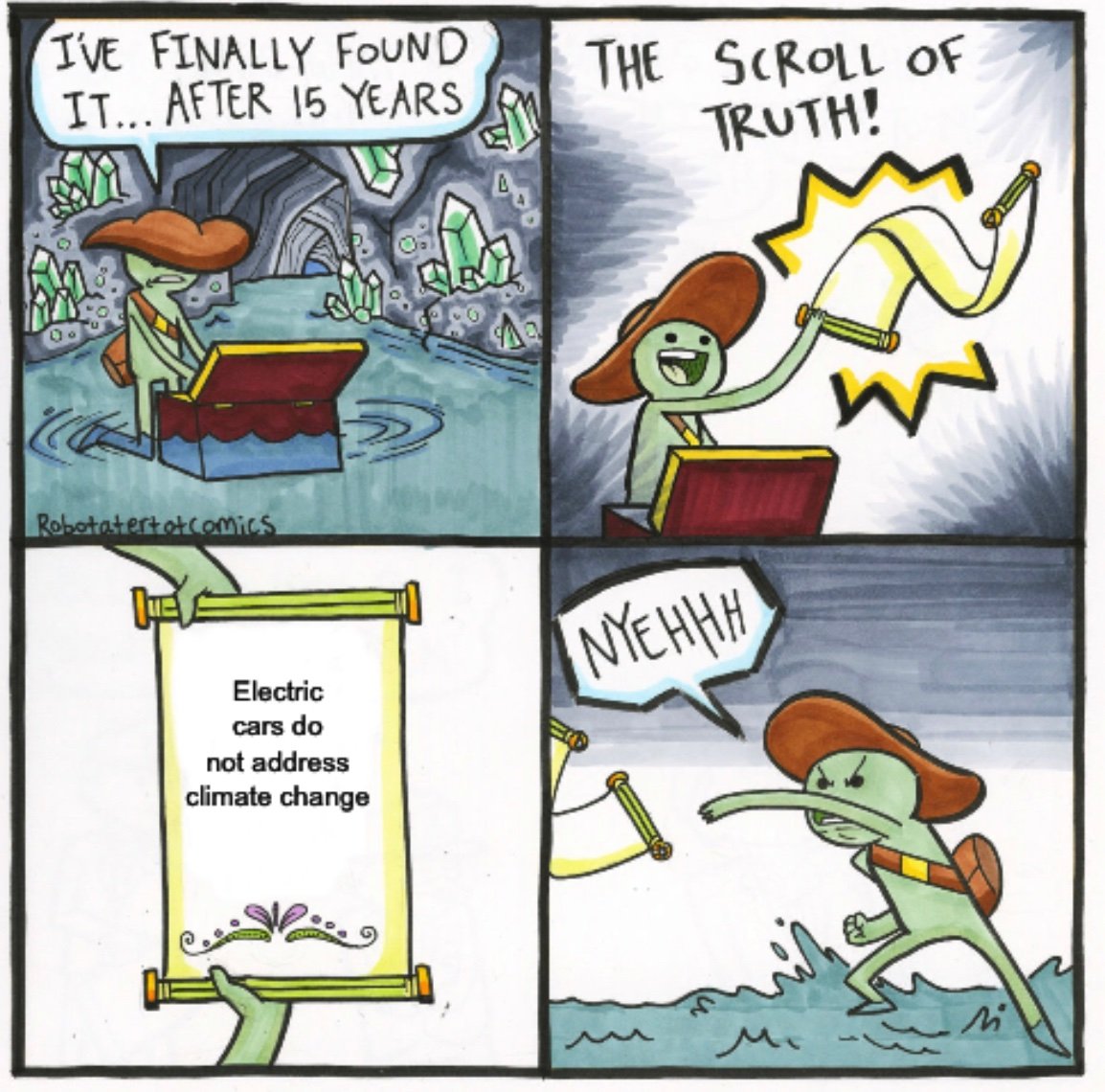Fuck Cars
A place to discuss problems of car centric infrastructure or how it hurts us all. Let's explore the bad world of Cars!
Rules
1. Be Civil
You may not agree on ideas, but please do not be needlessly rude or insulting to other people in this community.
2. No hate speech
Don't discriminate or disparage people on the basis of sex, gender, race, ethnicity, nationality, religion, or sexuality.
3. Don't harass people
Don't follow people you disagree with into multiple threads or into PMs to insult, disparage, or otherwise attack them. And certainly don't doxx any non-public figures.
4. Stay on topic
This community is about cars, their externalities in society, car-dependency, and solutions to these.
5. No reposts
Do not repost content that has already been posted in this community.
Moderator discretion will be used to judge reports with regard to the above rules.
Posting Guidelines
In the absence of a flair system on lemmy yet, let’s try to make it easier to scan through posts by type in here by using tags:
- [meta] for discussions/suggestions about this community itself
- [article] for news articles
- [blog] for any blog-style content
- [video] for video resources
- [academic] for academic studies and sources
- [discussion] for text post questions, rants, and/or discussions
- [meme] for memes
- [image] for any non-meme images
- [misc] for anything that doesn’t fall cleanly into any of the other categories
Recommended communities:
view the rest of the comments

Cars itself are actually only a small part of climate change. The major part of it is form construction, planes, and electricity. We can fix electricity with sustainable energy, fixing planes is a lot harder as of now. Fixing construction seems impossible for now.
We'll run out of time before we we hit zero. We are already too fast to break before the cliff. All we can hope for is a soft landing, and we need everything for that. Even nuclear energy (go 100% on nuclear!)
From the EPA, on US emissions:
Driving accounts for a larger percentage of emissions than you'd think - something like 14% of emissions are gasoline alone.
Electric cars have about half the lifecycle emissions of gas cars, so that's equivalent to a ~7% reduction in emissions - more if the grid goes solar.
That said, replacing suburban sprawl with traditional denser streetcar suburbs like you see in the Netherlands would be a much bigger reduction in emissions.
Wdym, in terms of construction? Do you mean emissions from concrete, emissions from steel manufacture of rebar, environmental impacts of deforestation for wooden housing? As far as I understand it, there are a couple of thrown around solutions to that, like adobe, superadobe, rammed earth, cob, compressed earth blocks, and mixed concrete compressed earth blocks, going kind of order from what I've seen of hotter to colder climates, roughly. And none of those even really include the use of straight stone or wood, either. Surely, if you're moving away from cars, as is the MO of this sub, you need less huge bridges and shit, less superstructures, skyscrapers, and that also cuts down on the use of concrete and steel. Most of the reason why people don't like those materials is just as a result of higher labor costs, which is mostly as a result of them being unusual in the modern day, which means they'll remain unusual, because everything has to be minmaxxed to shit on this god damn rock.